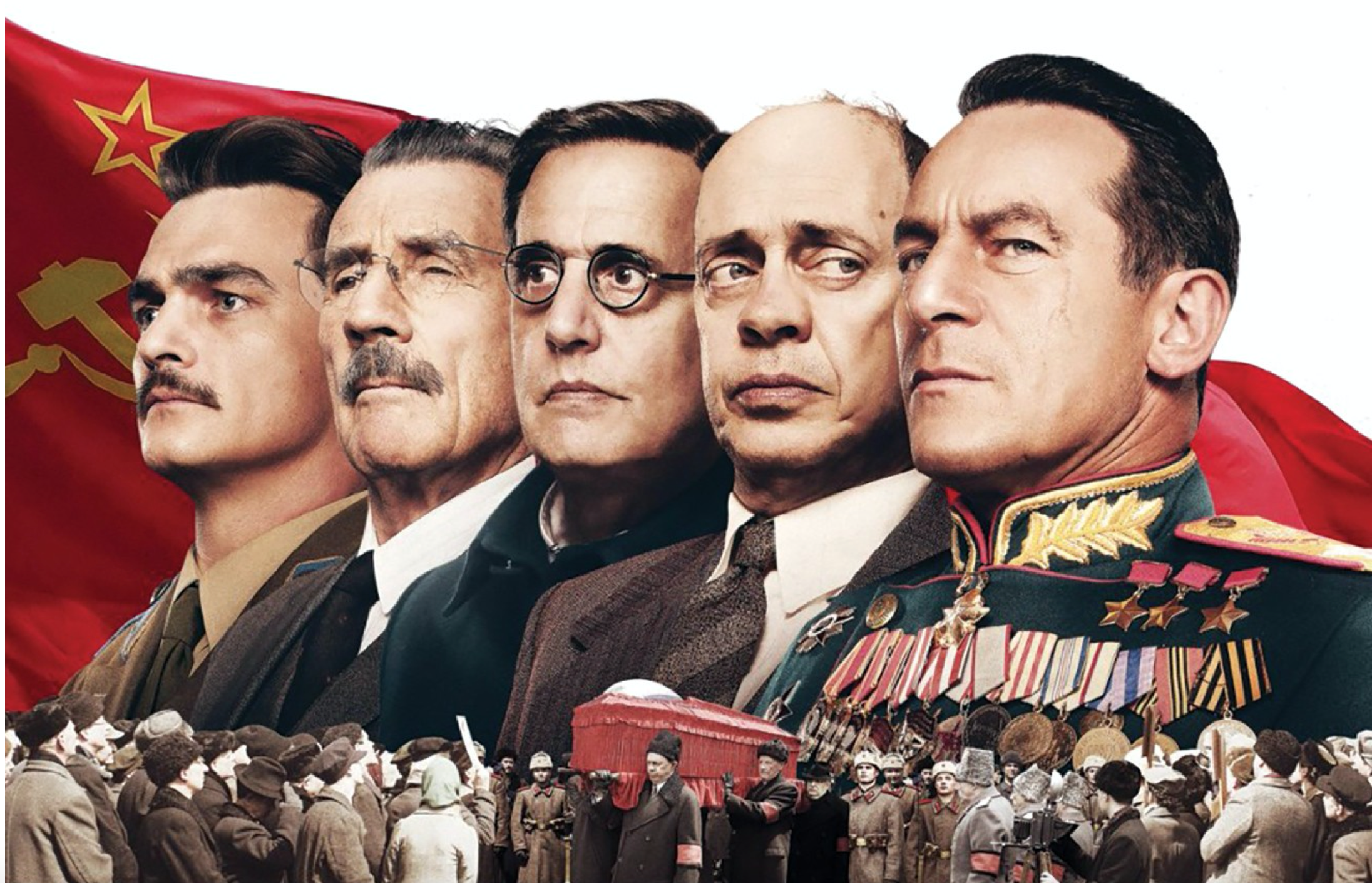“What would your good do if evil didn’t exist, and what would the earth look like if all the shadows disappeared?” – Mikhail Bulgakov
Comedic relief, applied to history, can be the blending of the absolutely horrific with the first hand accounts of survivors. It is “One day we’ll look back on this and laugh.”, fleshed-out. In the case of Armando Iannucci’s film The Death of Stalin it is, “One day others will look back on this and laugh.”, which can be uncomfortable if not for the masterful writing as well as the charm and delivery of the cast.

Jeffrey Tambor as Georgy Malenkov (interim general secretary after the death of Stalin). Later in the story of the Soviet Union, Georgy was banished from the communist party after a failed soft coup. Georgy lived out the remainder of his days relatively happy by being away from the drama of politics and maintaining an active life in religious circles.
My first viewing of this picture was admittedly not with my full attention but the tenor and flow was enough to grip my attention periodically between chores. Consequently my critique delivered with brevity goes like this: The film was awesome, the anxiety of the characters, the political maneuvering, the drunken histrionics and paranoid delusions crescendoing with an indelible climax – masterfully paused with a space of silence at the apex, the characters then gradually move to embrace the future they’ve conspired to craft, all created within the scope of true historical accounts of true events. The characters, from the smallest role to the greatest never experience character development, they are unapologetically themselves but even in this restrictive stasis they capture the tragedy, anxiety, bravery and sycophancy within all their delightful idiosyncrasies.
Steve Buscemi and Jason Isaacs as Nikita Khrushchev and Georgy Zhukov, respectively. A Friend Indeed : These gentlemen rendered assistance to each other several times evading political outmaneuvering and even death, before and after the passing of Stalin.
Iannucci’s palpable style from Veep (HBO Production) easily transfers over into this historical dark comedy. There are scenes in the picture that risk slapstick, necessary to remind the viewer that it’s still a comedy. A large part of the humor is derived from effectively transporting the viewers to the narrative’s era, viewing it with contemporary eyes is where the magic happens. This is a time where a single man (Stalin) consolidated the means of control so completely that he referred to the reserve ruling committee as “blind kittens.” without his influence. A man so insecure and paranoid from the absolute domination of his own country he would volunteer his committee members to stay late into the evening to watch films continue fraternizing with him. Yet, even for these surface faults, his influence was feared as omnipresent and his ire was a death sentence.

The Georgian revolutionary turned General Secretary of the Communist Party of the Soviet Union was played by Adrian McLoughlin. Pay close attention to the scene of his death and the enforced fraternity in a prior scenes, they are remarkably accurate, and comically so.
We in the western world are separated, nearly entirely, from this kind of authority, but it still exists today. Think North Korea as the most obvious (but not only) example. When Iannucci depicts this reality on film we draw humor from it because we know, no man is God and everybody poops. So when a senior composer in the film is reminded that the room they converse in is likely bugged with listening devices, we snicker as the composer suffers panic attacks for unintentionally questioning Stalin’s (the authority’s) melodious prowess in public. A benign offense to us, a death warrant to him.

Michael Palin as Vyacheslav Molotov (Minister of Foreign Affairs and First Deputy Chairman of the Council of Ministers). Churchill considered Molotov an equal to Mazarin, Talleyrand, and Metternich in the conduct of foreign affairs.
Characters throughout this film are constantly struggling with their contemporaneous truths, they even offer one another adaptive tricks to stay ahead in a world of mercurial purges. “Take notes of everything you said tonight before you go to sleep, review the list when you wake up tomorrow morning.” When the big event of the film occurs (death), those that are not completely ‘blind kittens’ begin to politically operate openly. These operations bring the viewer to the nascent post-Stalin world, the instability of this future is the rollercoaster viewers get to enjoy.

Simon Russell Beale plays a convincing Lavrentiy Pavlovich Beria in all its grim reality. The film alludes to his darkest predilections throughout while also highlighting his overt transgressions against humanity. Beria was the Minister of Internal Affairs of the Soviet Union, the state police and security forces were under his administration. He is a very sinister character of this period.
History makes strange bedfellows with the truth, or what some folks consider the truth. For example: The sun is hot, and prolonged exposure will damage your skin – and – “Through Stalin we are fed and protected, through him we are secure in our freedoms.” These truths are not equivalent, since one statement is a truth for everyone and the other is not. For that reason, I thank Stalin daily for the rye bread on my table.

